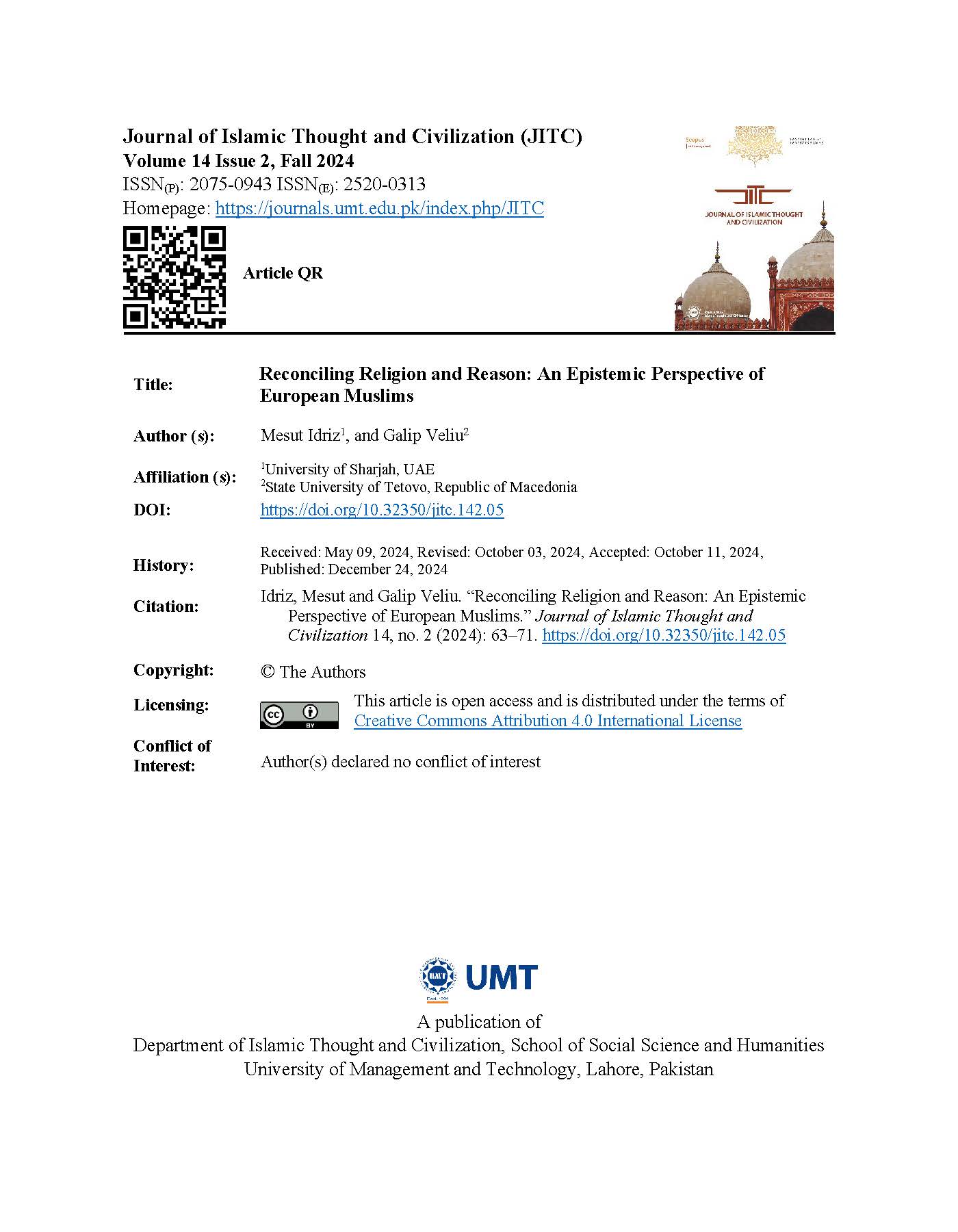Reconciling Religion and Reason: An Epistemic Perspective of European Muslims
Abstract
 Abstract Views: 0
Abstract Views: 0
Religion is a hallmark of human life, manifesting today in various guises. Hence, reason and belief are two essential human qualities, which add depth and meaning to life. Every human mind, at some point in life, questions whether belief is reasonable or whether reason itself should be believed. Thinkers have spent most of their lives grappling with these timeless questions. It is not sure whether they found satisfactory answers, as it remains uncertain; because they lived and died without leaving behind any trace of convincing and epistemic responses for their contemporaries or to future generations. This article aims to offer the premise that secular philosophers maximized their arguments to prove that their preference for reasoning over beliefs comprehensively supplies the epistemological solution to the problem. However, they have ultimately failed to draw a parallel connection with an epistemic reality. Their arguments could not surpass the reasonable act of belief from an epistemic perspective. This study aims to prove that all their efforts failed from an epistemic point of view. Thus, striving to get rid of believing, they ended up believing in reason itself, which is the most unreasonable act from an epistemic standpoint. This research holds an intrinsic view that neither reasoning has any value without believing nor believing makes sense without reasoning. Reason compels us to believe, just as believing compels us to reason; as a result, they are not contradictory but complementary to each other. These are two intrinsic human capabilities, which are necessary for the growth of our knowledge, and serve as the constituents for our progress in understanding and interpreting the universe. Reason cannot exist without belief, and likewise belief cannot exist without reason. Humans have always struggled to rationalize their instability, beliefs, and reasons to achieve full confidence in their claims and to constitute prosperity towards better and more useful epistemic solutions to the existing challenges of reality.
Downloads
References
Gutmann, Amy. and Dennis Thomson. Democracy and Disagreement. Massachusetts: Imprint of Harvard University, 1998.
Deloria Jr., Vine. Evolution, Creationism, and Other Modern Myths. Colorado: Fulcrum Publishing 2002.
Feyerabend, Paul. Science in a Free Society. New York: LNB, 1978.
Glanz, James. “Poll Finds that Support is strong for Teaching 2 Origin Theories.” The New York Times, March 2000.
Leo Strauss, City and Man. Chicago: Chicago University Press, 1977.
Newton, Isaac. Principia. trans. by Andrew Motte, ed. By Florian Cajori, Berkeley: University of California Press 1962.
Nietzsche, Fredrick W. Beyond Good and Evil. London: Arcturus Publishing Ltd, 2018.
Slater, Philip. The Wayward Gate. Boston: Beacon Press, 1977.

Copyright (c) 2024 Mesut Idriz, Galip Veliu

This work is licensed under a Creative Commons Attribution 4.0 International License.

This work is licensed under a Creative Commons Attribution 4.0 International License. Authors retain copyright and grant the journal right of first publication with the work simultaneously licensed under a Creative Commons Attribution (CC-BY) 4.0 License that allows others to share the work with an acknowledgement of the work’s authorship and initial publication in this journal.







